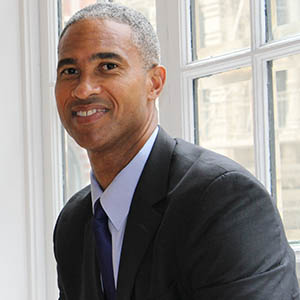Global Finance talked with Peter Blair Henry, dean of New York University’s Stern School of Business, about the urgency of bold reform and global trade to help developing nations.

Global Finance: What is the most important factor in boosting global prosperity?
Peter Blair Henry: Global trade. Trade is possibly the single most important factor that boosts global prosperity. And advanced economies need to take a hard look at their current policies and embrace market-friendly reforms like those James A. Baker III urged emerging countries to adopt in the 1980s: countercyclical fiscal policy, sound money and open markets. In advanced nations, we have structural issues. We lack clarity around fiscal and monetary policies. We have to address income inequality by addressing education, instead of blaming trade with China and other emerging countries for our underperformance. If we commit to substantial reforms, we have a very bright future ahead.
GF: How do you explain the lack of trust between developed and emerging economies?
Henry: Emerging markets now account for more than half of global growth, and that continues to increase (but) advanced countries have yet to grant them leadership roles that reflect their growing influence. The BRICs (Brazil, Russia, India and China) now produce about 20% of global GDP and account for 11% of the voting shares at the International Monetary Fund; Western European countries produce 24% of global GDP and have 32% of the IMF’s voting shares. In 2010, the finance ministers of the G20 agreed on an historic reform of the IMF, but still there has been no reform, mainly because of the opposition of the US Congress. This is a major reason why we have seen a proliferation of regional alternatives to global institutions. Think of Banco del Sur (a monetary fund and lending organization established in 2009 by Argentina, Brazil, Paraguay, Uruguay, Ecuador, Bolivia, Venezuela), the Chiang Mai Initiative (a multilateral currency-swap agreement launched in 2010 between Asean nations, China, Japan and South Korea), the BRICS Development Bank, and most recently, the Asian Infrastructure Investment Bank. Thanks to unfulfilled promises and the resulting lack of trust, both developing and developed countries have been trapped in a cycle of underperformance. The world economy expanded by 5.4% in 2010, but its annual rate of growth has declined in every subsequent year.
GF: Is social unrest one of the risks stemming from the lack of trust between emerging and developed countries?
Henry: Yes, that risk exists. There is a slow-moving collision course [unfolding] between creeping anti-capitalist sentiment, legitimate discontent and the coming boom of the workforce of emerging countries. In the early 1980s, gross global capital flows as a percentage of GDP were around 4%. We saw a dramatic rise in the subsequent two decades, with gross capital flows peaking in 2007 at approximately 20% of GDP. We had a dramatic drop in capital flows after the financial crisis, down to about 5%. Gross capital flows have still not rebounded to pre-crisis levels, and this is unfortunate because we now face a period of dramatic growth in the labor force of the developing world. Over the next 15 years, countries such as Pakistan, Indonesia and Nigeria will add approximately 1.7 million people per month to the combined labor force of developing nations. Large numbers of young people without work is a recipe for social unrest.



